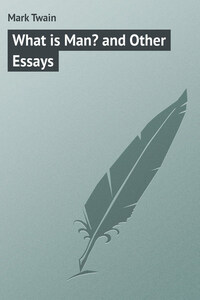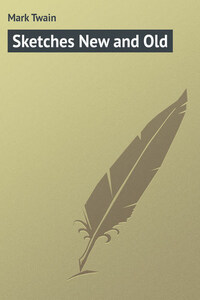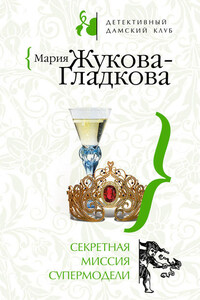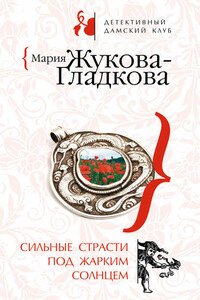I
a. Man the Machine.
b. Personal Merit.
(The Old Man and the Young Man had been conversing. The Old Man had asserted that the human being is merely a machine, and nothing more. The Young Man objected, and asked him to go into particulars and furnish his reasons for his position.)
Old Man. What are the materials of which a steam-engine is made?
Young Man. Iron, steel, brass, white-metal, and so on.
O.M. Where are these found?
Y.M. In the rocks.
O.M. In a pure state?
Y.M. No – in ores.
O.M. Are the metals suddenly deposited in the ores?
Y.M. No – it is the patient work of countless ages.
O.M. You could make the engine out of the rocks themselves?
Y.M. Yes, a brittle one and not valuable.
O.M. You would not require much, of such an engine as that?
Y.M. No – substantially nothing.
O.M. To make a fine and capable engine, how would you proceed?
Y.M. Drive tunnels and shafts into the hills; blast out the iron ore; crush it, smelt it, reduce it to pig-iron; put some of it through the Bessemer process and make steel of it. Mine and treat and combine several metals of which brass is made.
O.M. Then?
Y.M. Out of the perfected result, build the fine engine.
O.M. You would require much of this one?
Y.M. Oh, indeed yes.
O.M. It could drive lathes, drills, planers, punches, polishers, in a word all the cunning machines of a great factory?
Y.M. It could.
O.M. What could the stone engine do?
Y.M. Drive a sewing-machine, possibly – nothing more, perhaps.
O.M. Men would admire the other engine and rapturously praise it?
Y.M. Yes.
O.M. But not the stone one?
Y.M. No.
O.M. The merits of the metal machine would be far above those of the stone one?
Y.M. Of course.
O.M. Personal merits?
Y.M. PERSONAL merits? How do you mean?
O.M. It would be personally entitled to the credit of its own performance?
Y.M. The engine? Certainly not.
O.M. Why not?
Y.M. Because its performance is not personal. It is the result of the law of construction. It is not a MERIT that it does the things which it is set to do – it can't HELP doing them.
O.M. And it is not a personal demerit in the stone machine that it does so little?
Y.M. Certainly not. It does no more and no less than the law of its make permits and compels it to do. There is nothing PERSONAL about it; it cannot choose. In this process of "working up to the matter" is it your idea to work up to the proposition that man and a machine are about the same thing, and that there is no personal merit in the performance of either?










